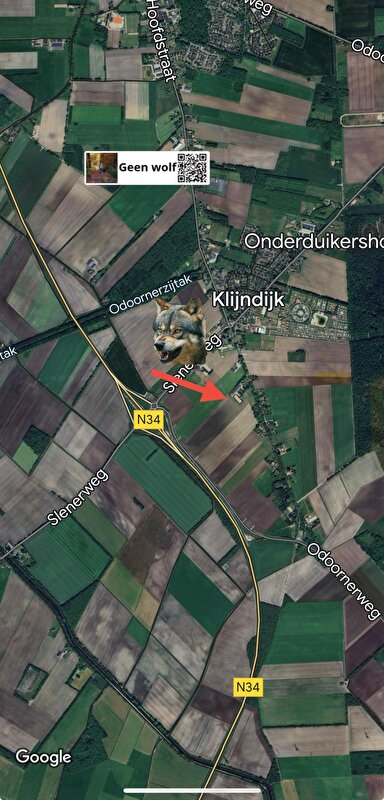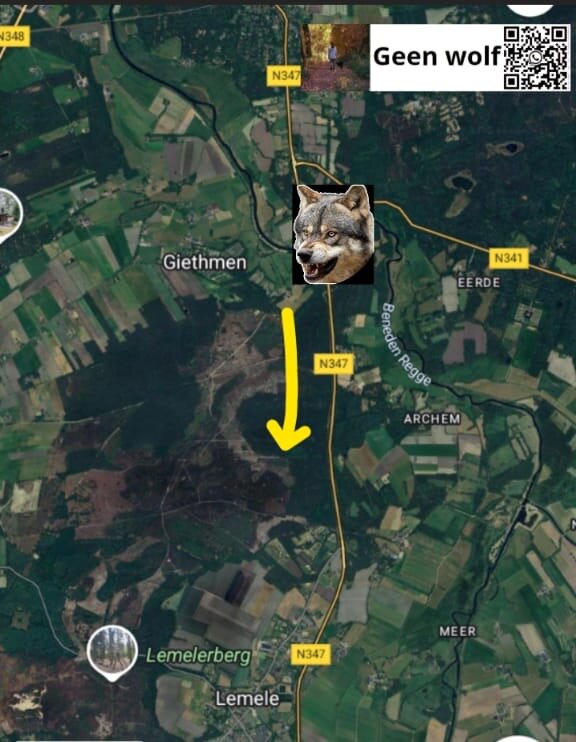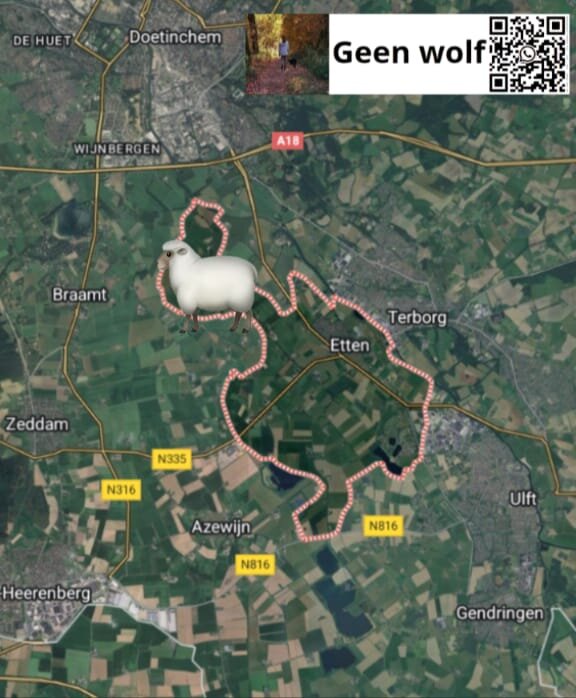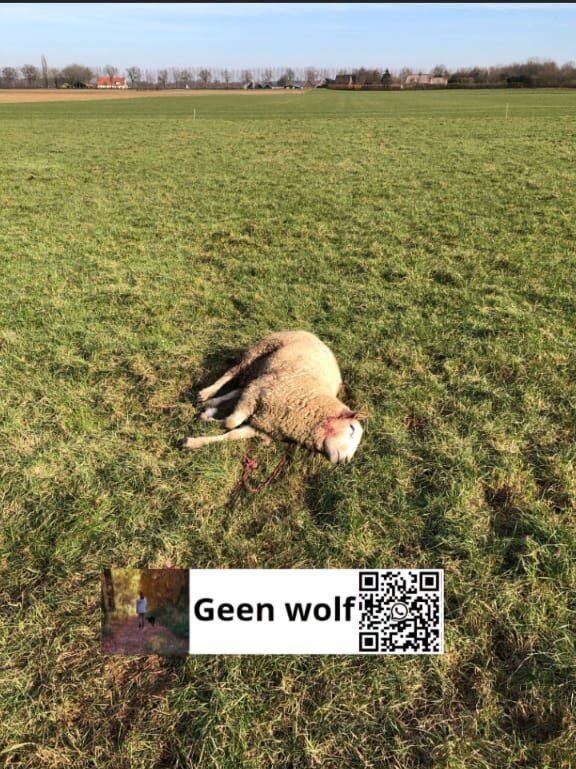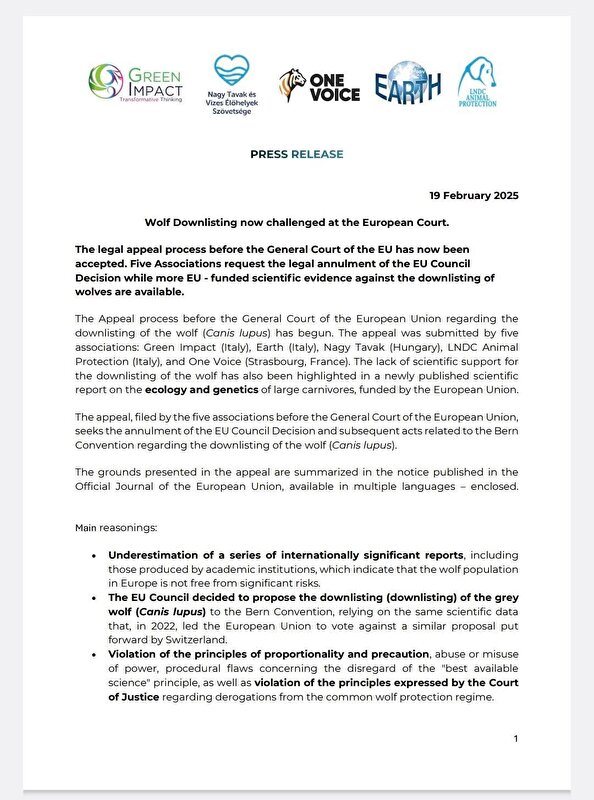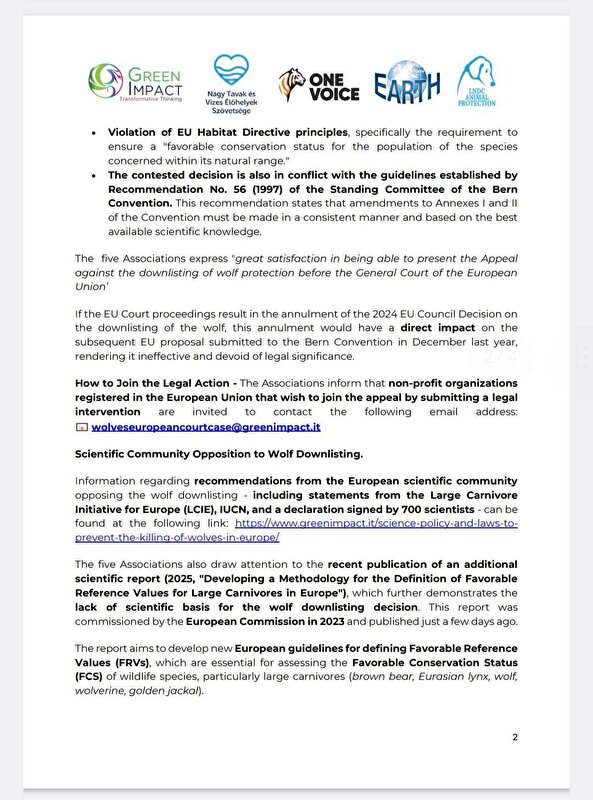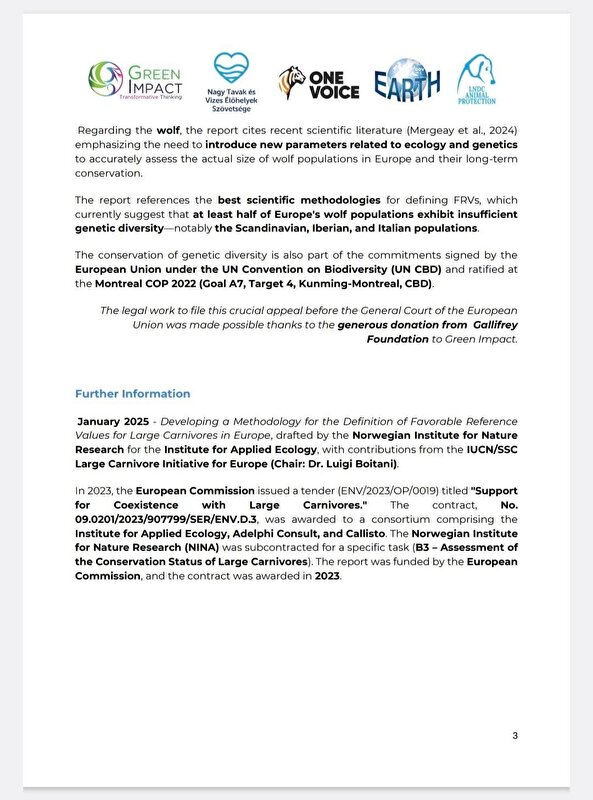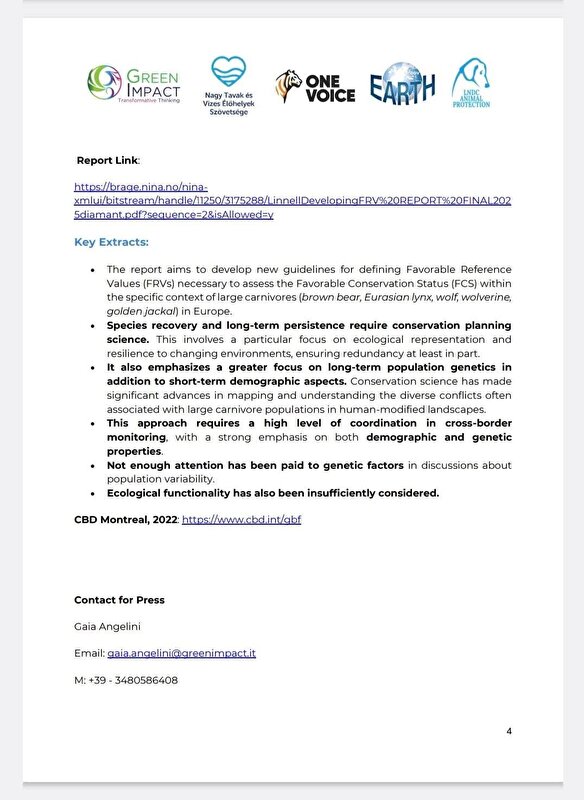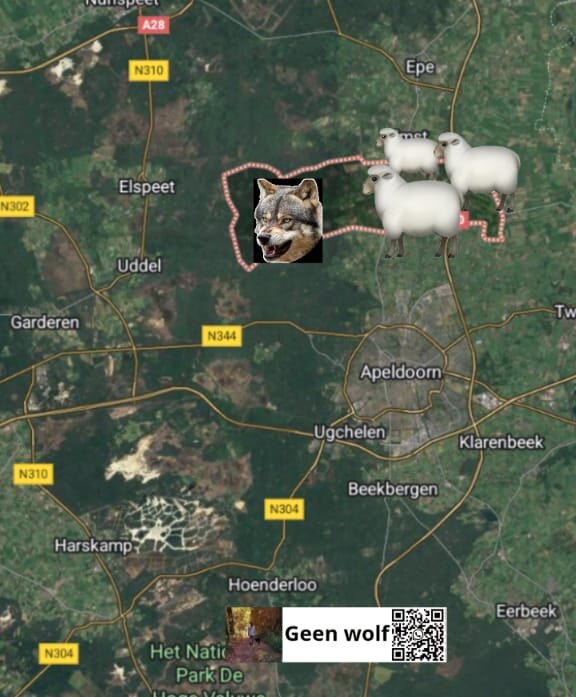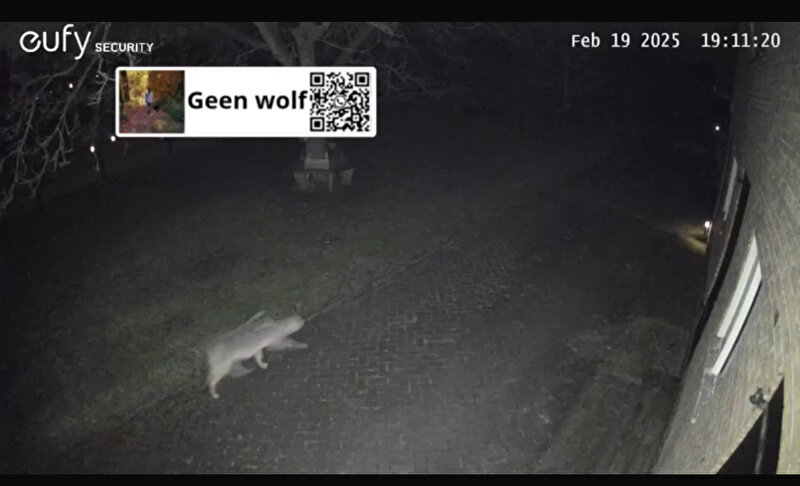Persbericht: Verlagen beschermde status wolf aangevochten voor Europees Hof
Het Gerecht van de Europese Unie heeft officieel het beroep aanvaard tegen het besluit van de Raad van de EU om de grijze wolf (Canis lupus) op de lagere lijst te plaatsen.
Vijf milieu- en dierenbeschermingsorganisaties - Green Impact (Italië), Earth ODV (Italië), Nagy Tavak Szövetség (Hongarije), LNDC Animal Protection (Italië) en One Voice (Frankrijk) - hebben beroep aangetekend en proberen de beslissing nietig te verklaren.
Waarom is deze zaak cruciaal?
Het voorstel om de diersoort op een lagere lijst te plaatsen is niet wetenschappelijk onderbouwd. Het is gebaseerd op dezelfde gegevens die ertoe hebben geleid dat de EU een soortgelijk verzoek in 2022 heeft afgewezen, en nieuw gepubliceerd door de EU gefinancierd onderzoek weerlegt de geldigheid ervan.
Het beroep stelt dat de beslissing:
✔ wetenschappelijke rapporten onderschat van toonaangevende instellingen, die aangeven dat wolvenpopulaties in Europa kwetsbaar blijven.
✔ In strijd is met fundamentele rechtsbeginselen van de EU, waaronder de norm van de beste beschikbare wetenschappelijke gegevens en het evenredigheids- en voorzorgsbeginsel.
✔ Is in strijd met de Habitatrichtlijn van de EU, die vereist dat een "gunstige staat van instandhouding" voor soorten wordt gehandhaafd.
✔ Is in strijd met de richtlijnen van het Verdrag van Bern, die voorschrijven dat wijzigingen in beschermingsniveaus voor soorten gebaseerd moeten zijn op degelijk wetenschappelijk bewijs.
Een keerpunt voor de bescherming van biodiversiteit
Als het EU-Hof het besluit om de lijst in 2024 te downlisten nietig verklaart, wordt het daaropvolgende voorstel dat in december 2024 bij het Verdrag van Bern wordt ingediend, juridisch ongeldig.
Juridisch en wetenschappelijk bewijs
De gronden voor het beroep worden uiteengezet in het Publicatieblad van de Europese Unie, dat in meerdere talen beschikbaar is:
https://lnkd.in/dWbpzpdU.
Daarnaast toont een nieuw wetenschappelijk rapport dat in 2025 werd gepubliceerd – “Developing a Methodology for the Definition of Favorable Reference Values for Large Carnivores in Europe” (Ontwikkeling van een methodologie voor de definitie van gunstige referentiewaarden voor grote carnivoren in Europa) – verder het gebrek aan wetenschappelijke basis voor de downlisting aan. Het rapport, dat in 2023 in opdracht van de Europese Commissie is opgesteld, is nog maar enkele dagen geleden uitgebracht en versterkt het verzet van de wetenschappelijke gemeenschap:
https://lnkd.in/d9pi-YPUToonaangevende experts, waaronder het Large Carnivore Initiative for Europe (LCIE), de IUCN en 700 wetenschappers, hebben zich al sterk uitgesproken tegen dit project. Lees meer:
https://lnkd.in/dupEHK_D Deze juridische strijd gaat niet alleen over wolven - het gaat over het verdedigen van op wetenschap gebaseerd natuurbeschermingsbeleid in Europa.
_______________________________________________
Press Release: Wolf Downlisting challenged before the European Court
The General Court of the European Union has officially accepted the legal appeal against the EU Council’s decision to downlist the grey wolf (Canis lupus).
Five environmental and animal protection organizations—Green Impact (Italy), Earth ODV (Italy), Nagy Tavak Szövetség (Hungary), LNDC Animal Protection (Italy), and One Voice (France)—have filed this appeal, seeking to annul the decision.
Why is this case crucial?
The downlisting proposal is not backed by sound science. It relies on the same data that led the EU to reject a similar request in 2022, and newly published EU-funded research further refutes its validity.
The appeal argues that the decision:
✔ Underestimates scientific reports from leading institutions, which indicate that wolf populations in Europe remain vulnerable.
✔ Violates fundamental EU legal principles, including the best available science standard and the proportionality and precautionary principles.
✔ Contradicts the EU Habitats Directive, which requires maintaining a "favorable conservation status" for species.
✔ Conflicts with the Bern Convention’s guidelines, which mandate that changes to species protection levels be based on robust scientific evidence.
A turning point for biodiversity protection
If the EU Court annuls the 2024 downlisting decision, the subsequent proposal submitted to the Bern Convention in December 2024 would become legally void.
Legal & Scientific Evidence
The grounds for the appeal are detailed in the Official Journal of the European Union, available in multiple languages:
https://lnkd.in/dWbpzpdU Additionally, a new scientific report published in 2025—"Developing a Methodology for the Definition of Favorable Reference Values for Large Carnivores in Europe"—further demonstrates the lack of scientific basis for the downlisting. Commissioned by the European Commission in 2023, it was released just days ago, reinforcing the opposition from the scientific community:
https://lnkd.in/d9pi-YPU Leading experts, including the Large Carnivore Initiative for Europe (LCIE), IUCN, and 700 scientists, have already voiced strong opposition. Read more:
https://lnkd.in/dupEHK_D This legal battle is not just about wolves—it’s about defending science-based conservation policies in Europe.

